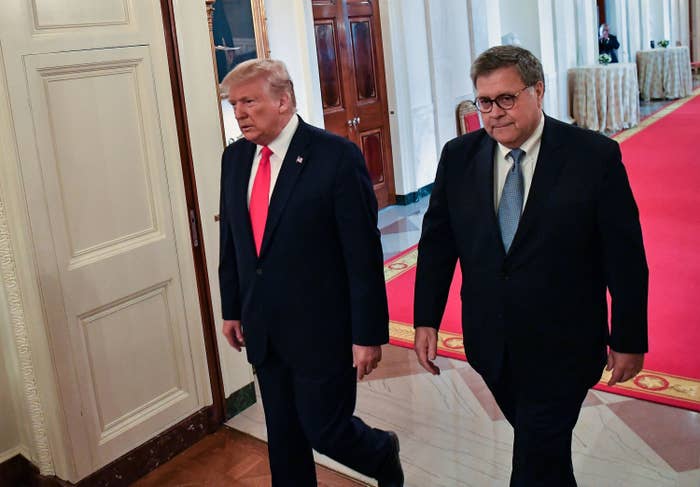
When William Barr was appointed attorney general, I believed he was capable of sticking to the rule of law and ensuring the Department of Justice maintained the public trust in the midst of an investigation of the president. I said as much on live TV.
I was wrong. William Barr has eroded public trust in government and the rule of law and has earned himself an impeachment inquiry of his own. It is a grave and sad statement to make, and I don’t make it lightly.
At the time of Barr’s appointment, we were comparing him to the ethically challenged and significantly less qualified Matthew Whitaker. Barr had the credentials, having served as attorney general under George H.W. Bush and, presumably, he had an investment both in his legacy and in the importance of the DOJ as a respected institution.
But it’s now clear that Attorney General Barr deserves an impeachment inquiry, regardless of the outcome, because trust in government requires it.
While we have never impeached a sitting US attorney general, the facts emerging from the national security whistleblower complaint have raised calls for Barr’s recusal from any involvement in DOJ actions around it. But while recusal is necessary, it is also insufficient. As a former assistant United States attorney in the Civil Division, I know that without trust in our laws and their guardians, more people feel justified in breaking more laws, and the government loses its credibility.
The whistleblower complaint makes three deeply disturbing charges. First, that President Trump engaged a foreign government to aid his campaign for reelection, second, that White House staff helped to hide the evidence, and third, that White House lawyers participated in some way. We know that Trump asked Ukraine’s president to meet with Barr and the president’s personal attorney Rudy Giuliani, to get dirt on candidate Joe Biden.
The Trump-appointed inspector general found this complaint “credible” and “urgent.” So did the president also ask Barr to meet with the Ukrainians? And if he did, how did Barr respond? While the DOJ issued a statement denying that Barr had discussions with the president about Ukraine, Barr and his office were involved in determining whether the president may have violated the law. The public should not be required to take the DOJ statement as proof.
When the acting director of National Intelligence received the complaint to send to Congress as required by law, he contacted the Department of Justice. The DOJ made the baffling determination that the complaint was not subject to the law requiring oversight. Was Barr was directly engaged in that decision? It is difficult to believe the president didn’t ask Barr to contact Ukrainian officials or that, given the president was the subject of the complaint, that Barr was not engaged in discussions of the complaint.
We need answers to these questions. Making a specious legal argument and obstructing congressional oversight of a complaint implicating the president in a crime are both shocking acts on their own.
And yet, there is more. Federal prosecutors named Donald Trump “Individual 1,” in a campaign finance crime. Yet further investigation into the role of the Trump Organization in hiding hush payments to Stormy Daniels and Karen McDougal, an apparent campaign finance crime, was abruptly dropped, raising eyebrows among former members of that office. Did Barr have a hand in that? And how much did he know about the “pattern of obfuscation” raised in the whistleblower complaint?
Serious questions about Barr’s conduct began with his handling of the Mueller report. Some Democrats raised his impeachment back in May when he misled Congress about rumors that Mueller team members were upset with him. When asked in sworn testimony if he knew why, he said he did not. That was apparently untrue, we learned, because Mueller told him he believed his report was being misrepresented. Barr also refused to credibly answer Sen. Kamala Harris’s question about whether the president asked him to open any investigations. His confusion about the word “suggest” was astounding at the time. Against the backdrop of the call summary, it requires serious investigation.
The attorney general is a Cabinet member who can and should advise the president on policy and carry out the president’s policy goals. He is also the highest law enforcement officer in the land, swearing an oath to country, not to party. Former White House counsel Don McGahn resigned because the president requested that he disrupt the Mueller probe. That is the kind of behavior we expect from government lawyers.
Maya Wiley is a senior vice president for social justice at the New School and its Henry Cohen Professor of Urban Policy and Management. She is a racial justice advocate and digital equity strategist.
